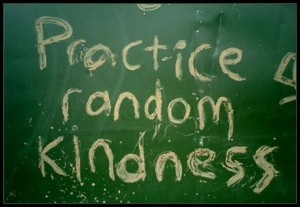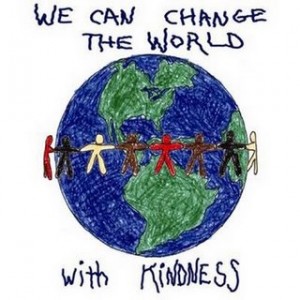A column written for McClatchy-Tribune News Service
By Lauren R. Stanley
The other day, I received a phone call from the garage where I had had my car worked on twice in two weeks. I was already on the phone, so I couldn’t take the call. But as soon as possible, I listened to the message, fearing something else was wrong with my car.
“Hi, this is …,” the owner of the business said. “You had your car back for service last week. Just calling to say thank you for bringing it back. Thank you.”
That’s it: Just a quick message meant to build a relationship with a new customer.
That’s the level of discourse I would like to see in this country – a simple “thank you” – rather the diatribes that fill the airwaves and jam the social networks.
 Especially right now, in the aftermath of the Tucson shootings, vitriol dominates our lives. Fingers are pointing and awful words are being said about the shootings, about who said what that might have incited a mentally ill young man to kill six and wound 14 others.
Especially right now, in the aftermath of the Tucson shootings, vitriol dominates our lives. Fingers are pointing and awful words are being said about the shootings, about who said what that might have incited a mentally ill young man to kill six and wound 14 others.
But our need to harm each other, to sear each other’s souls with words of hatred, isn’t limited to the shootings.
If you listen to the ubiquitous talk shows, you know what I mean. There, words of hatred are shouted hourly, threats are made daily. Vitriol is the currency, and we have only ourselves to blame, for we are the ones who listen, who support, who participate.
Or look at Facebook, where seemingly innocuous events cause people to declare their desire to “castrate” someone (that was for a snow closing), to put others in the “cross-hairs” (those generally center on politics), to “get” yet another person who has somehow disappointed or displeased us.
And dip into – if you dare – Twitter, where people threaten each other daily. I pray that those who Tweet are not seriously considering acting upon their threats, but who knows these days?
If nothing else, the shootings in Arizona have shown that we have lost the ability to communicate with kindness.
In our rush to comment, we have forgotten how to set a guard over our mouths, how to keep our tongues for evil and our lips from speaking deceit, as the Psalmist warns us.
We have forgotten that as beloved children of God – which all of us are, whether we like it or not – the writer of Proverbs warns us that we must watch over our mouths and our tongues if we want to keep out of trouble. Rash words are like sword thrusts, Proverbs says, but the tongue of the wise brings healing.
The writer of Ephesians follows up on that: “Let no evil talk come out of your mouths, but only what is useful for building up, as there is need, so that your words may give grace to those who hear.”
“Give grace to those who hear …”
Would that that were happening right now in this country particularly.
What has happened to us that we have forgotten how to give grace, how to speak words that build up? Why are we so eager to blame, to hurt, to disparage? And when … when? … did we stop teaching people to be careful with their words?
This is not a diatribe against anyone in particular on the left or the right. This is not about politics, or gun control, or even the appalling lack of care for those who are mentally ill.
This is a discussion – I hope, I pray – about how we can find our way to being decent to each other.
We spend an inordinate amount of time disparaging others and speaking words of violence (really, who in the world wants to castrate someone over a snow closing? Does the person who wrote that even know how to do that? Or what it means?). We curse, we threaten, we denigrate, we abuse, we attack. We use words to hurt, to injure, to wound.
Why?
What purpose does it serve? It might make us feel better in that moment, but when we look at what we have wrought – an atmosphere of hatred – do we still feel better then?
St. James wrote, “With (the tongue) we bless the Lord and Father, and with it we curse those who are made in the likeness of God. From the same mouth come blessing and curing. My brothers and sisters, this ought not to be so.”
St. Peter added, “Those who desire life and desire to see good days, let them keep their tongues from evil and their lips from speaking deceit.”
Our words, our comments, have meaning and they have impact. When we choose to speak dark words, are we really surprised when darkness envelops us?
But when we speak words of grace, healing results. Isn’t that what we want in our own lives? And if so, isn’t that what we should want in the lives of others?
It really isn’t that hard to speak words of grace. A simple “thank you,” such as the message left for me by the business owner, can be so powerful.
If we want to improve our lives, and the lives of those around us, if we want to heal our ailing world, first, we need to guard our mouths.






